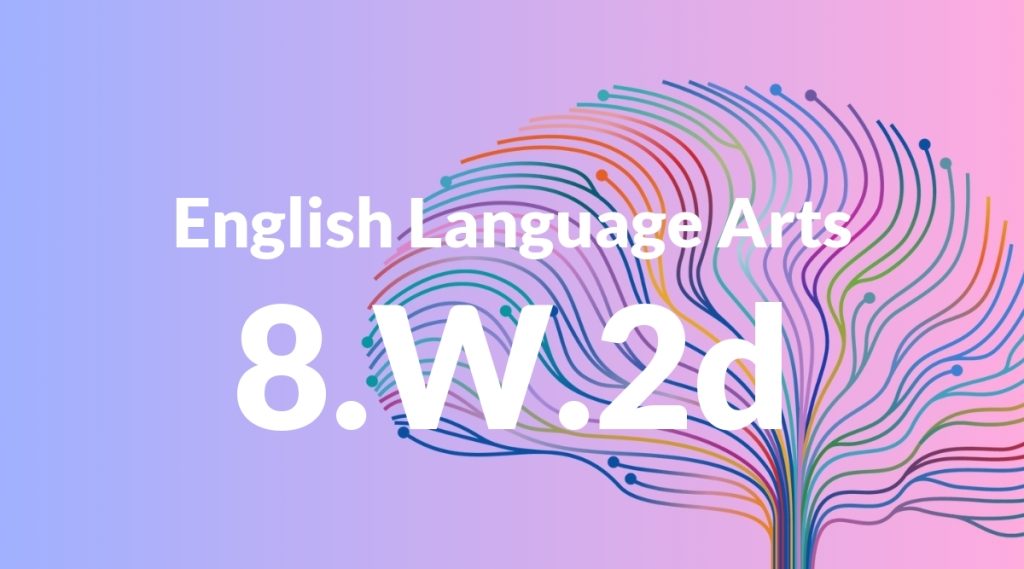Standard: 8.W.2 – Write informative/explanatory texts to examine a topic and convey ideas, concepts, and information through the selection, organization, and analysis of relevant content.
Grade level: Grade 8
Subject: English Language Arts
Domain: Writing
Teacher Overview
This standard focuses on developing students’ ability to write informative/explanatory texts. It is crucial as it helps students learn how to convey information clearly and accurately, a skill that is essential for academic and real-world success. Before tackling this standard, students should be comfortable with basic writing skills, including paragraph structure and using supporting details. They should also have some experience with conducting research and citing sources.
Mastering this standard will prepare students for more advanced writing tasks, such as argumentative essays. They will also enhance their ability to organize and present information effectively.
Common Misconception 1
A common misconception is that informative writing does not need a clear structure. This is incorrect because a well-organized structure helps the reader understand the information being presented.
Intervention 1
To address this misconception, use graphic organizers to help students plan their writing. Ensure they include a clear introduction, body, and conclusion.
Common Misconception 2
Another misconception is that students can include their opinions in informative writing. This is incorrect because informative writing should be based on facts and evidence.
Intervention 2
To remediate this misconception, practice exercises that help students distinguish between fact and opinion. Reinforce the importance of sticking to factual information in their writing.
Prerequisite Knowledge
Students should have a basic understanding of paragraph structure, including topic sentences and supporting details. They should also be familiar with basic research skills and how to cite sources.
Subsequent Knowledge
After mastering this standard, students will be able to write more complex analytical essays, including argumentative essays. They will also improve their ability to organize and present information clearly and effectively.
Instructional Activities
- Use graphic organizers to plan informative essays.
- Conduct research on a chosen topic and write a report.
- Create a brochure or pamphlet on a local landmark or event.
- Write a step-by-step guide on how to perform a specific task.




